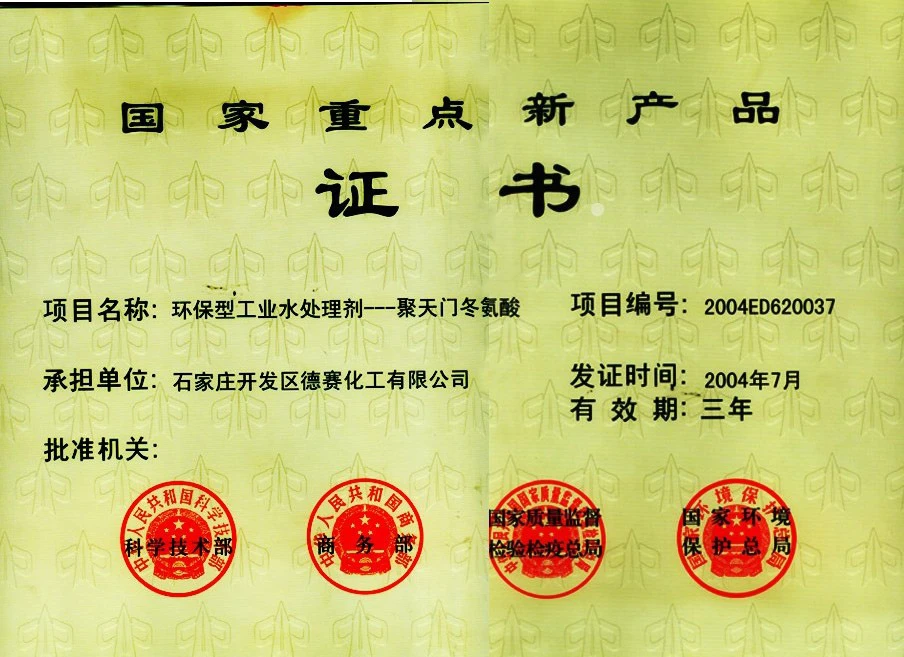
News
Zář . 16, 2024 15:52 Back to list
water soluble fertilizer with chelated iron
The Importance of Water-Soluble Fertilizers with Chelated Iron for Plant Health
Water-soluble fertilizers have become increasingly popular among gardeners and agricultural producers due to their quick absorption and efficient delivery of essential nutrients. Among these, water-soluble fertilizers containing chelated iron are particularly valuable, as iron plays a critical role in plant growth and development. This article explores the significance of using water-soluble fertilizers with chelated iron and how they benefit both plants and soil health.
Iron is a vital micronutrient that is essential for the synthesis of chlorophyll, the green pigment responsible for photosynthesis. Without adequate iron, plants may exhibit symptoms of chlorosis, characterized by yellowing leaves, stunted growth, and overall poor health. Chelated iron fertilizers provide a solution to iron deficiency by ensuring that iron remains soluble and readily available to plants, even in varying soil pH conditions. The chelation process involves binding iron to organic molecules, which protects it from forming insoluble compounds, thus enhancing its availability.
One of the key advantages of water-soluble fertilizers with chelated iron is their rapid action. Unlike traditional fertilizers, which may take longer to break down and release nutrients, water-soluble options can be immediately absorbed by the root system. This immediate availability is particularly beneficial during critical growth stages or in conditions where soil nutrients are depleted. Additionally, it allows for easy application, whether through regular watering or fertigation systems, ensuring that plants receive the necessary nutrients when they need them most.
water soluble fertilizer with chelated iron

Moreover, the use of chelated iron can significantly improve soil health over time. Conventional fertilizers can sometimes lead to soil acidification or other imbalances, negatively impacting the soil ecology. In contrast, water-soluble fertilizers with chelated iron not only supply essential nutrients but can also promote the activity of beneficial microorganisms in the soil, potentially enhancing nutrient uptake and overall soil structure.
The versatility of water-soluble fertilizers extends to various applications, making them suitable for a wide range of crops, including vegetables, fruits, and ornamental plants. They can be used in hydroponic systems, container gardening, and traditional soil-based cultivation, providing growers with flexibility in their nutrient management strategies.
Furthermore, the rise of organic farming and sustainable agriculture emphasizes the importance of using eco-friendly fertilization methods. Many water-soluble fertilizers with chelated iron are derived from natural sources, making them less harmful to the environment while still delivering effective results. This alignment with sustainable practices is essential for preserving soil health and promoting responsible agriculture.
In conclusion, water-soluble fertilizers with chelated iron are an indispensable tool for gardeners and farmers alike. Their ability to provide immediate nutrients improves plant health, prevents deficiencies, and enhances soil quality. As the demand for high-quality produce continues to grow, incorporating chelated iron into fertilization practices is a step towards achieving healthier crops and a more sustainable agricultural system. Whether for home gardening or large-scale farming, the use of these fertilizers is a proactive approach to ensuring thriving plant life.
-
Polyaspartic Acid Salts in Agricultural Fertilizers: A Sustainable Solution
NewsJul.21,2025
-
OEM Chelating Agent Preservative Supplier & Manufacturer High-Quality Customized Solutions
NewsJul.08,2025
-
OEM Potassium Chelating Agent Manufacturer - Custom Potassium Oxalate & Citrate Solutions
NewsJul.08,2025
-
OEM Pentasodium DTPA Chelating Agent Supplier & Manufacturer High Purity & Cost-Effective Solutions
NewsJul.08,2025
-
High-Efficiency Chelated Trace Elements Fertilizer Bulk Supplier & Manufacturer Quotes
NewsJul.07,2025
-
High Quality K Formation for a Chelating Agent – Reliable Manufacturer & Supplier
NewsJul.07,2025
